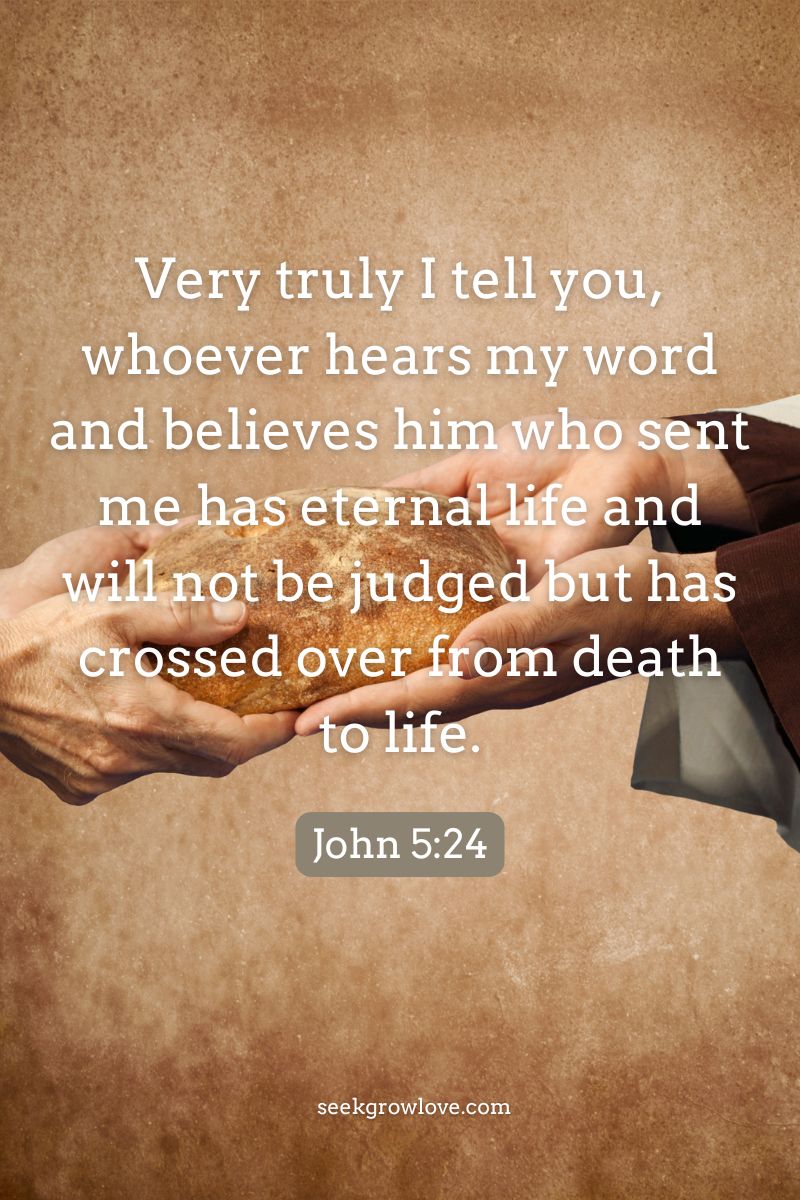John 5
Devotion by Cayce Fletcher (SC)
David Foster Wallace, a popular modern literary author, gave a commencement address in 2005 that everyone should read at least once. Wallace wasn’t a religious person, but he was concerned about the search for meaning. His speech highlights a central truth about humanity while recognizing how this truth is realized in an increasingly secular world.
He begins his speech with the story of a fish who greets two fish by asking, ‘How’s the water?’ After that fish swims away, the other fish turns to his friend and asks, ‘What the heck is water?’
Here is a quote, at length, from his speech: “Because here’s something else that’s weird but true: in the day-to-day trenches of adult life, there is actually no such thing as atheism. There is no such thing as not worshipping. Everybody worships. The only choice we get is what to worship. […]
“The whole trick is keeping the truth up front in daily consciousness.
“Worship power, you will end up feeling weak and afraid, and you will need ever more power over others to numb you to your own fear. Worship your intellect, being seen as smart, you will end up feeling stupid, a fraud, always on the verge of being found out. But the insidious thing about these forms of worship is not that they’re evil or sinful, it’s that they’re unconscious. They are default settings.
“They’re the kind of worship you just gradually slip into, day after day, getting more and more selective about what you see and how you measure value without ever being fully aware that that’s what you’re doing. […]
“It is about the real value of a real education, which has almost nothing to do with knowledge, and everything to do with simple awareness; awareness of what is so real and essential, so hidden in plain sight all around us, all the time, that we have to keep reminding ourselves over and over:
“This is water.“
This is a truth we all need to remind ourselves of. We are all predisposed towards following idols and worshipping things that ultimately are fruitless.
In today’s readings, I see the same truth in Jesus’ words. In Jesus’ words to the Jews, he speaks of their reverence – their worship – for the law of Moses. But, he sees – and we see – how this reverence ultimately led them to reject the very thing that Moses was looking forward to: Jesus.
In John 5:39-40, he says, “You study the Scriptures diligently because you think that in them you have eternal life. These are the very Scriptures that testify about me, yet you refuse to come to me to have life.”
Their worship caused them to become focused on the wrong things, and in so doing, they missed the true life that was in Jesus.
We have the same option before us. We can choose to follow after all of these idols, thinking we will gain something from them. But, ultimately, that will simply lead to a fruitless life.
Or, we can choose to come to Jesus and gain true life.
In Wallace’s speech, his conclusion is that people should just live to be kind, but he rejects the idea that there is a greater religious implication for his worship. And, the tragedy of Wallace’s life is that he never came to Jesus himself. In 2008, he committed suicide.
What are you choosing to worship today? Come to Jesus, and gain true life.
Cayce Fletcher writes and podcasts at amorebeautifullifecollective.com. Check out the blog and other resources to help you create a life you love and cultivate your heart for God. This free resource here will help you take your Bible study one step further with a Bible reading tracker, Bible study reflection page, and more.
Reflection Questions
- What were the Jews worshipping? Why was this ultimately fruitless without Jesus?
- What are you choosing to worship today? Will it result in something lasting?
- Jesus says, “Come to me, and you will have life.” How does Jesus grant life now – in addition to eternal life?










